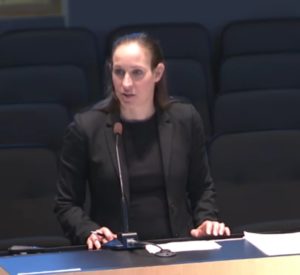
When top charter school networks consider moving into new community, they don’t just look at funding or charter school laws. They look at the whole “educational ecosystem.”
That was the message a KIPP representative brought to a Florida Senate panel looking at charter school legislation.
Trisha Coad is the director for new site development for the Knowledge is Power Program, which operates 200 charter schools, including three in Jacksonville.
She told the Senate Education Committee the charter network is eyeing expansions in Florida — especially Miami. It’s looking at some predictable factors: Community demand, affordable school facilities, adequate public funding, respect for charters’ autonomy.
KIPP also looks for “strong authorizing, where charter schools are held to high expectations,” Coad said.
Nationwide, about 96 percent of KIPP students are black or Hispanic, and 88 percent qualify for free and reduced-price lunch. Its graduates are more than four times more likely than their peers from similar backgrounds to finish college. Those results depend on more than friendly laws or regulations.
“We find it’s helpful to operate in communities where there is a strong educational ecosystem, meaning that there are a variety of programs to recruit and retain teachers, and programs that make higher education affordable to our students and students from similar backgrounds,” Coad said.
The Senate committee held a workshop on 12 school choice-related bills. Two of them — SB 1362 by Sen. Doug Broxson, R-Pensacola and SB 796 by Sen. Aaron Bean, R-Fernandina Beach — include provisions intended to make state laws more friendly to “high-impact,” KIPP-like charter school networks.
A similar measure has not yet been introduced in the House, but leaders in that chamber have for months been laying groundwork for legislation that would support high-impact charters.
“Since Florida has barriers, let’s tear ’em down,” Bean, whose district includes parts of Jacksonville, told the committee today. “Let’s get these high-performing charter schools into Florida.”


